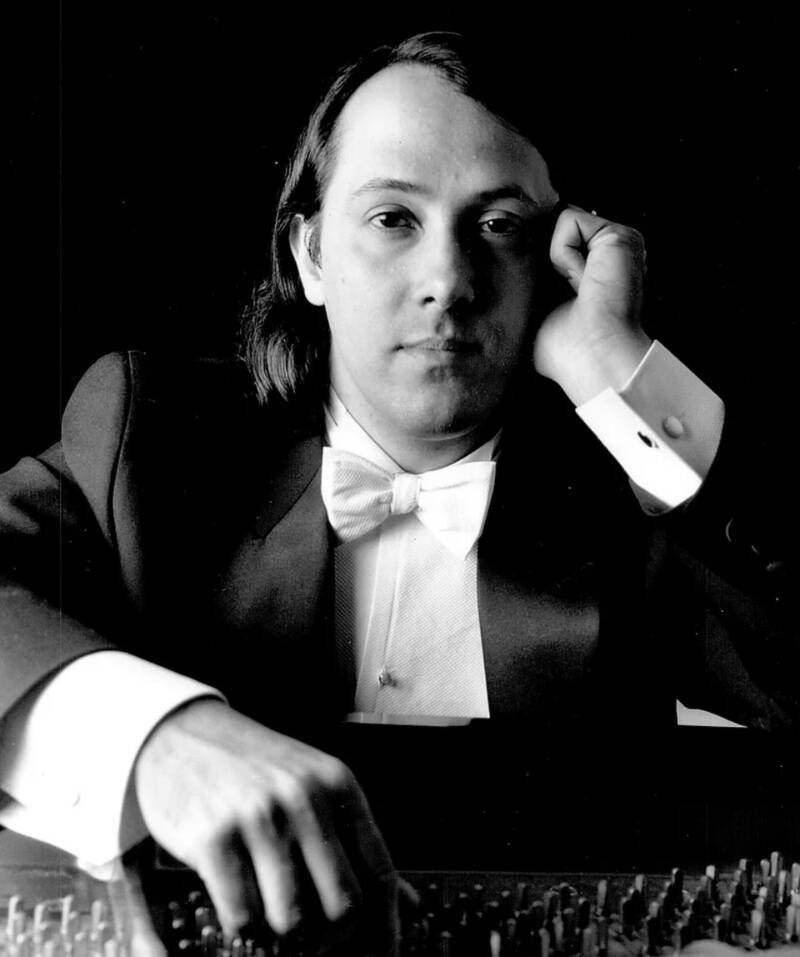An evening of Frédéric Chopin’s music will be presented at 7:30 p.m. Saturday, Sept. 23, at Vashon Center for the Arts.
The concert will feature renowned pianist and cellist, Mark and Jonathan Salman, who are father and son, respectively.
The first half of the concert will feature Mark, playing the rarely performed Polonaise Fantasie and Chopin’s Fourth Ballad, among other works. In the second half, Jonathan will join his father to perform Chopin’s magnificent Cello Sonata.
Last week, musicologist Michael Tracy interviewed pianist Mark Salman on his education, career and Chopin’s music.
You play mostly from memory as when you performed all 32 Beethoven Sonatas, some 11 hours of music. Some pianists say they visualize the printed score and actually turn pages in their mind’s eye. What is your method for memorization?
Memorization is a complicated process, involving many conscious and unconscious elements.
It is a blend of aural memory, the ability to hear back the piece in detail in one’s mind, muscle memory from practicing the piece repeatedly, and an intellectual, conscious, analytic memory based on a theoretical knowledge of how the piece is structured.
Ideally, I can write the score of the piece out from memory, and during performance can conjure in my mind every note before I play it. If one lives through the piece while playing it, one feels the inevitability of every note, and instinctively senses the meaning of every tiny detail, every silence, every harmony, every voicing or doubling, and why that note and only that note will evoke the precise meaning of the music in that moment.
Compared to other composers such as Bach or Brahms, do you find Chopin easier to perform and memorize, or more difficult?
Chopin music has such a logical, graceful and natural feel under the hands, which makes him easier to perform and keep in memory than many composers.
He did most of his composition at the piano, so his writing physically flows out from the hands and arms in an unforced way, even when he is composing something extraordinarily difficult. His flow of ideas is so spontaneous, the flow of emotions so natural, the music stays with you.
Bach, due to his contrapuntal density and complexity, is harder to keep in memory, and Brahms tends to feel rather awkward, jumpy and clunky under the hand, and can be harder to retain.
When you graduated from Julliard, you then studied at MIT. Why and what did you study at MIT, a university mostly known math, technology, and science?
I first studied at Juilliard, in its pre-college division, while in high school, which was one of the most important musical experiences of my life. Although I had always intended to be a pianist from the age of about 10.
For college I decided on something different, having always been interested in math and science, so ended up at MIT.
I took all the freshman calculus, physics and science requirements. Musically, I found MIT an interesting place, having the opportunity to study more composition, theory, contemporary and chamber music than had I gone directly to a music conservatory.
Knowing something of the giant intellectual world outside of music has benefitted my outlook personally and as an artist. After two years at MIT, I missed the intense involvement in performance and decided to finish my degree at Juilliard.
For all its value, this time felt quite like what I had experienced during high school, and I’ve always greatly valued my time away from the straight and narrow musical path.
Would you describe Chopin’s music as lyrical and abstract, melodic and then chromatic, and even contrapuntal?
I would agree that Chopin’s music can be described in all of those ways. Despite his popularity among audiences, I think his contributions to music are still underappreciated.
His chromatic approach to harmony was incredibly advanced for his time, and in the 1830s he was already pushing toward the 20th century in his destabilization of harmony and the creation of disorienting emotional effects.
He anticipated everything that Wagner achieved in harmony 20 or 30 years later.
His approach to form is imaginative, flexible, and original, more so than any of his contemporaries. Where he went expressively is wider ranging than his contemporaries, and often strange and unusual, [in] that [it] anticipates the 20th century. His melodic and harmonic style are more original than any other composer of the 19th century.
His ability to combine improvisatory elements with an extremely disciplined sense of form and counterpoint is unprecedented. He somehow can effortlessly combine a Beethoven or Bach-like rigor with an operatic, Bellini-like expressiveness.
His Sonata for cello and piano, which ends Saturday’s program, is a masterpiece, rich in emotions, dense counterpoint, drama, startlingly chromatic harmony, complex interweaving interactions between the two instruments, and beautiful and original melodies.
Find out more and purchase tickets to the concert at vashoncenterforthearts.org.



